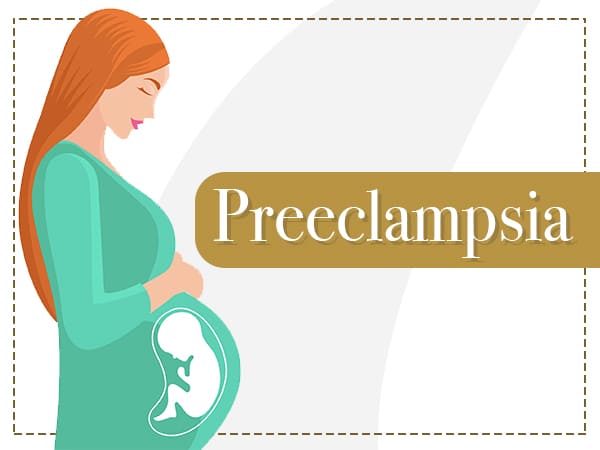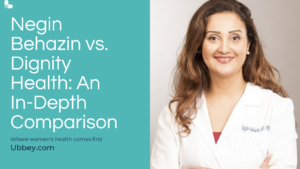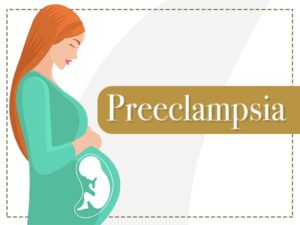
Causes Of Preeclampsia
Preeclampsia, a potentially severe complication during pregnancy, necessitates a comprehensive understanding of its symptoms and causes for expectant mothers. Early recognition of signs and risk factors is crucial for timely intervention and optimal maternal and fetal health outcomes. Exploring how health insurance can provide a safety net becomes paramount in this context. As we delve into the symptoms and causes of preeclampsia, the importance of buying health insurance emerges as a critical component in ensuring access to quality healthcare throughout this delicate period.
Preeclampsia, marked by high blood pressure and proteinuria, poses serious risks to mother and child if untreated. Emerging after 20 weeks of gestation, early detection during routine prenatal visits is crucial.
Symptoms And Indicators
Preeclampsia presents with symptoms like high blood pressure, proteinuria, headaches, vision changes, and breathlessness, making it crucial to distinguish them from common pregnancy complaints through regular prenatal visits.
When To Seek Medical Attention
Monitoring blood pressure during prenatal visits is essential. However, immediate medical attention is warranted if severe headaches, stomach pain, shortness of breath, or visual disturbances occur. Given the overlap with normal pregnancy discomforts, especially for first-time mothers, consulting a healthcare provider about any concerning symptoms is advised.
Causes And Related Conditions
While the exact cause of preeclampsia remains unclear, it is often associated with placental abnormalities affecting blood vessel formation. Other pregnancy-related high blood pressure conditions include gestational hypertension and chronic hypertension. Risk factors encompass a history of preeclampsia, carrying multiple children, pre-existing diabetes, renal disease, autoimmune conditions, and in vitro conception.
Factors At Risk
Specific demographics face increased risks, with Black and Native American women exhibiting higher susceptibility. Social determinants of health, long-term stressors, and limited access to healthcare contribute to these disparities. Lower income is also linked to a higher preeclampsia risk, particularly for Black individuals or those with lower incomes.
Complications And Dangers
Preeclampsia can lead to fetal growth restriction, premature delivery, abrupt caesarean section, HELLP syndrome, eclampsia, additional organ damage, and heightened cardiovascular disease risk. Timely detection and management are crucial to mitigate these complications.
Preventive Measures
Low-dose aspirin is a recommended preventive measure, especially for those with moderate to high-risk factors after 12 weeks of pregnancy. Lifestyle choices, including maintaining overall health and addressing pre-existing conditions, are vital in preventing and managing preeclampsia.
The information presented is not meant to be a substitute for medical advice. Any suggestions mentioned should be considered for general use only. For expert guidance on any health ailment or medical issue or any treatment/procedure, please consult a certified medical professional.
The intricate web of symptoms and causes surrounding preeclampsia underscores the significance of proactive healthcare measures. As expectant parents navigate this complex landscape, health insurance becomes pivotal. Buying health insurance offers financial protection, ensuring that the costs associated with prenatal care, potential complications like preeclampsia, and other medical exigencies are covered. *
Navigating the complexities of preeclampsia underscores the need for expectant parents to prioritise their family’s well-being by considering comprehensive health insurance for parents of child coverage. Claims are subject to terms and conditions set forth under the health insurance policy. *
Utilising tools such as health insurance premium calculator to compare plans ensures a tailored and cost-effective approach. In safeguarding the health and well-being of both mothers and infants, investing in health insurance emerges as a proactive step towards a secure and healthy pregnancy journey. Make sure you compare health insurance plans before buying one.
*Standard T&C Apply
Disclaimer: The content on this page is generic and shared only for informational and explanatory purposes. It is based on several secondary sources on the internet and is subject to changes. Please consult an expert before making any related decisions.
Insurance is the subject matter of solicitation. For more details on benefits, exclusions, limitations, terms, and conditions, please read the sales brochure/policy wording carefully before concluding a sale.







